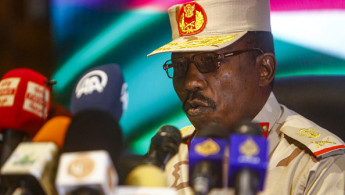UN Security Council considers sanctioning two RSF generals in Sudan
A United Nations Security Council committee is considering sanctioning two generals with Sudan's paramilitary Rapid Support Forces (RSF) for threatening the country's peace, security, or stability, including through violence and human rights abuses.
If the men are designated it would be the first U.N. sanctions imposed over the current war in Sudan, which erupted in mid-April last year from a power struggle between the Sudanese army (SAF) and the paramilitary Rapid Support Forces ahead of a planned transition to civilian rule.
The United States has formally proposed that an international travel ban and asset freeze be imposed on RSF head of operations Osman Mohamed Hamid Mohamed and RSF West Darfur Commander Abdel Rahman Juma Barkalla, diplomats said.
The Security Council's 15-member Sudan sanctions committee operates by consensus. If no one raises any objections to the proposal by Friday afternoon then the men will be designated. Members can also ask for more time to consider the proposal, place it in limbo by putting a hold on it, or simply block it.
The war in Sudan has produced waves of ethnically driven violence blamed largely on the RSF. The RSF denies harming civilians and attributes the activity to rogue actors.
The United States says the warring parties have committed war crimes and the RSF and allied militias have also committed crimes against humanity and ethnic cleansing.
The U.N. says nearly 25 million people - half of Sudan's population - need humanitarian aid, famine is looming and 10 million people have fled their homes. More than 2.2 million of those people have left for other countries.
The Security Council created its targeted Sudan sanctions regime in 2005 in a bid to help end a conflict in Darfur. There are currently three people on the sanctions list, added in 2006. The council also imposed an arms embargo on Darfur in 2004.
In the early 2000s the U.N. estimates 300,000 people were killed in Darfur when "Janjaweed" militias - from which the RSF formed - helped the army crush a rebellion by mainly non-Arab groups. Former Sudanese leaders are wanted by the International Criminal Court for genocide and crimes against humanity.
(Reuters)




 Follow the Middle East's top stories in English at The New Arab on Google News
Follow the Middle East's top stories in English at The New Arab on Google News


